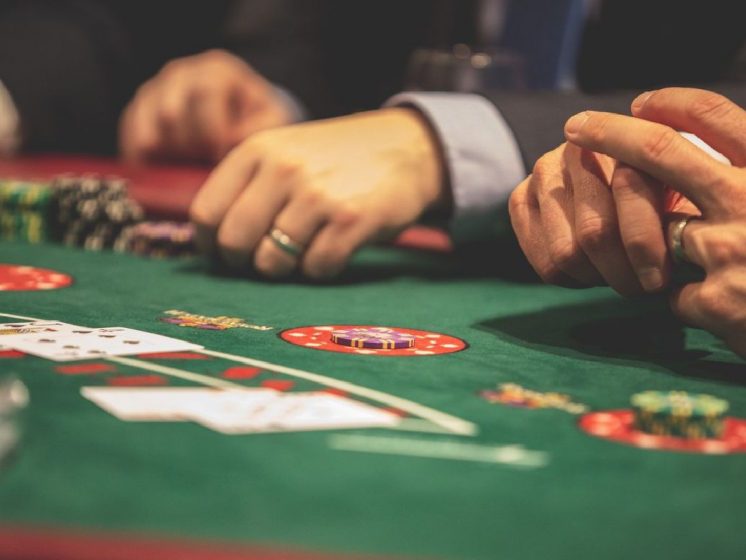Why a Lot of Poker Bluffing with Bombs During the Cold War

Many poker players believe that poker is more than a game; it is a way of life. Even still, many of them are unlikely to believe that poker has anything to do with life continuing to exist on our planet.
I chatted with James McManus about his outstanding history of poker, Cowboys Full (2009), a few years ago, just after its release. Among the numerous subjects we discussed was his book’s strong case that poker bluffing with bombs during the cold war.
Let’s take a step back and look at the series of links McManus was referring to the ones connecting poker, game theory, and high-stakes talks during the Cold War and consider whether poker has already saved us all. The biggest opportunity is in slot gacor.
Poker Bluffing with Bombs During the Cold War : Game and Poker Theory

McManus was specifically referring to Oskar Morgenstern, the German-born economist and mathematician who emigrated to the United States during the 1930s and later served as an advisor to President Dwight D. Eisenhower during the 1950s, when he mentioned advisors drawing on game theory in their recommendations to leaders.
Morgenstern had been working and living in Vienna as a professor. In reality, Adolf Hitler seized Austria during Morgenstern’s visit to the United States in 1938, compelling him to stay in America and later join the faculty at Princeton University.
Morgenstern would encounter another intellectual émigré at Princeton, Hungarian-born mathematician John von Neumann. Von Neumann wrote a work in German titled “Zur Theorie der Gesellschaftsspiele” or “On the Theory of Parlor Games” in 1928.
Poker Bluffing with Bombs During the Cold War : You M.A.D., Bro?
Von Neumann also served as a presidential advisor. During the war, he was a member of the Manhattan Project, which developed the atomic bombs used in Japan at the end of the war, and he was among those who advised President Harry Truman on their use and target selection. In truth, while Morgenstern later advised Eisenhower, von Neumann was there as well, serving as the chair of the top-secret Continental Ballistic Missile Committee till his death in 1957.
The Cold War began not long after WWII ended, it’s also affect the poker bluffing with bombs during the cold war as Winston Churchill’s famous “Iron Curtain” statement in 1946.
The concept of utilizing mathematical models to describe various sorts of military combat gained traction in the years that followed. Leaders like Eisenhower asked thinkers like von Neumann Morgenstern to share their expertise.
One von Neumann-credited theory that frequently comes up in talks of these high-stakes Cold War “games” is “mutual assured destruction,” also known by its darkly hilarious abbreviation “M.A.D.”
Poker Bluffing with Bombs During the Cold War : Russians Play Chess, Americans Play Poker
As the 1960s began and John F. Kennedy took office, the Cold War managed to lead headlines and op-ed pages.
On February 5, 1961, just a few weeks into JFK’s presidency, Morgenstern published an article in The New York Times titled “The Cold War Is Cold Poker,” which specifically emphasized the parallel between poker strategy and the ongoing diplomatic conflict between the United States and the Soviet Union.
“The cold war has been compared to a big chess game between us and the Soviet Union, and Russia’s frighteningly frequent triumphs have been linked to the national fascination with chess,” Morgenstern continued.
Morgenstern contended that because “chess is the Russian national sport and poker is ours, we should be more skilled than they in adopting its precepts to the cold war battle.” Unfortunately, it was not the case by early 1961.
By his following acts, Kennedy would be widely recognized for reaffirming the “we play poker, they play chess” notion, emphasizing both cultural distinctions and the two superpowers’ divergent strategic orientations toward one another. Also, supporting the “poker gives a superior way” argument.
Poker Bluffing with Bombs During the Cold War : Is Poker Greater Source of War Strategy?
However, not everyone agreed that poker was a greater source of Cold War strategy for the United States than chess. Three weeks later, Louis Wiznitzer replied to Morgenstern’s piece in the New York Times, claiming its pro-poker stance “sums up pretty well the basic reasons why the United States has been slowly losing the cold war in the previous twelve years.”
“Whereas the Communists are playing chess, with movements as scientifically prepared as possible,” Wiznitzer observed, “the Americans are inventing poker plays and bluffs, with no master strategy or purpose, and relying more or less on their previous hand, or reacting to the enemy’s wager.”
Read More: Wild Bullets Review: RTP 96% and Features (Evoplay)